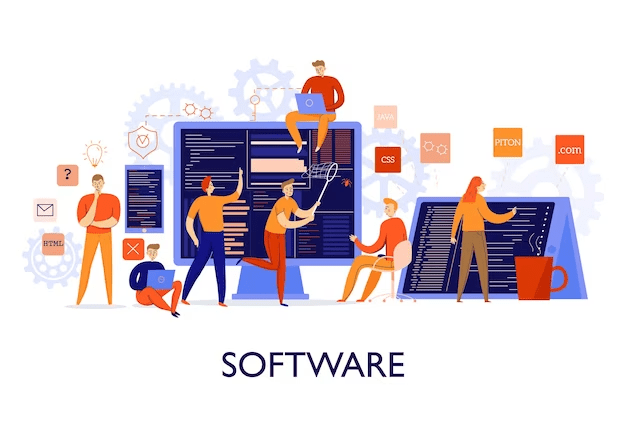
Sales compensation software is a valuable tool that can streamline the sales process and improve sales performance for businesses of all sizes. This software can provide accurate compensation calculations, motivate sales teams, and provide real-time reporting and analytics on sales performance metrics. In this blog post, we will explore the benefits of sales compensation software, the different types available, key features to look for, and best practices for implementation. We will also focus on Incentive Compensation Management Solution (ICMS) and Sales Performance Management (SPM) software for the retail industry.
The Benefits of Sales Compensation Software
Sales compensation software provides several benefits for businesses that include the following:
Improved Sales Performance: Sales compensation software can motivate sales teams to perform at their best by offering incentives based on performance. The software provides real-time feedback on sales performance, which allows businesses to identify areas for improvement and take corrective actions.
Accurate Compensation Calculation: With sales compensation software, businesses can automate the compensation calculation process and eliminate the risk of errors that can occur when done manually. This ensures that sales reps are paid accurately and on time.
Motivated Sales Teams: Sales compensation software can incentivize sales reps to work harder and achieve better results. This can improve employee morale and retention, as well as lead to increased revenue for the business.
Streamlined Compensation Process: Sales compensation software can automate the compensation process, making it faster and more efficient. This saves businesses time and reduces the workload for human resources and finance departments.
Real-time Reporting and Analytics: Sales compensation software provides real-time reporting and analytics on sales performance metrics, which allows businesses to make informed decisions and take corrective actions quickly.
Types of Sales Compensation Software
There are several types of sales compensation software available in the market, and businesses should choose the one that aligns with their specific needs. The most common types include:
Incentive Compensation Management Solution (ICMS): ICMS is a type of sales compensation software that is designed to automate the calculation and payment of sales commissions. It provides businesses with real-time reporting and analytics on sales performance metrics, which can be used to adjust compensation plans and motivate sales teams.
Sales Performance Management (SPM): SPM is a type of sales compensation software that provides businesses with insights into sales performance metrics, such as revenue, quota attainment, and win rate. It can also be used to motivate sales teams and align compensation with performance.
Customer Relationship Management (CRM): CRM is a type of sales compensation software that is designed to manage customer relationships, sales leads, and sales opportunities. It provides businesses with real-time reporting and analytics on sales performance metrics, which can be used to improve sales performance.
Enterprise Resource Planning (ERP): ERP is a type of sales compensation software that is designed to manage business operations, such as inventory, finance, and supply chain management. It provides businesses with real-time reporting and analytics on sales performance metrics, which can be used to improve business processes and decision-making.
Features to Look for in Sales Compensation Software
When choosing sales compensation software, businesses should look for software with the following features:
Customizable Compensation Plans: The software should allow businesses to customize compensation plans to align with their specific needs and goals.
Integration with Other Business Systems: The software should integrate seamlessly with other business systems, such as ERP, CRM, and HR software.
Real-time Reporting and Analytics: The software should provide real-time reporting and analytics on sales performance metrics, such as revenue, quota attainment, and win rate.
User-friendly Interface: The software should have a user-friendly interface that is easy to navigate and understand.
Automation of Compensation Processes: The software should automate the compensation process to save time and reduce the workload for human resources and finance departments.
Choosing the Right Sales Compensation Software for Your Business
To choose the right sales compensation software for your business, you need to assess your specific needs and goals. Consider the size of your sales team, the complexity of your sales compensation plans, and the level of integration you require with other business systems. You should also consider the level of support and training provided by the software vendor.
If you’re a retailer, you may want to consider sales compensation software that is specifically designed for the retail industry. Incentive Compensation Management Solution (ICMS) and Sales Performance Management (SPM) software are two types of sales compensation software that are particularly well-suited to the needs of retailers.
ICMS software can help retailers automate the calculation and payment of sales commissions. It can also provide real-time reporting and analytics on sales performance metrics, which can be used to adjust compensation plans and motivate sales teams. This software is particularly useful for retailers with large sales teams, complex compensation plans, and high sales volume.
SPM software, on the other hand, provides insights into sales performance metrics, such as revenue, quota attainment, and win rate. It can be used to motivate sales teams and align compensation with performance. This software is particularly useful for retailers that want to focus on improving their sales performance and growing their revenue.
When implementing sales compensation software, it is important to follow best practices to ensure a successful rollout. These include:
- Clearly define your goals and objectives: Before implementing sales compensation software, clearly define your goals and objectives, and ensure that they align with the needs of your business.
- Involve all stakeholders: Involve all stakeholders in the decision-making process, including sales reps, human resources, and finance departments. This will help ensure that the software meets the needs of all parties.
- Provide training and support: Provide training and support to sales reps and other users to ensure that they are comfortable using the software and that they can use it effectively.
- Monitor performance: Monitor the performance of the software regularly to identify areas for improvement and make necessary adjustments.
- Continuously improve: Continuously improve your sales compensation plans and software to ensure that they remain aligned with the needs and goals of your business.
Conclusion
In conclusion, sales compensation software can provide numerous benefits to businesses of all sizes, including improved sales performance, accurate compensation calculation, motivated sales teams, streamlined compensation processes, and real-time reporting and analytics. By choosing the right sales compensation software for your business and implementing it effectively, you can take your Sales Performance Management for Retail Industry to the next level and drive growth and success for your business.








